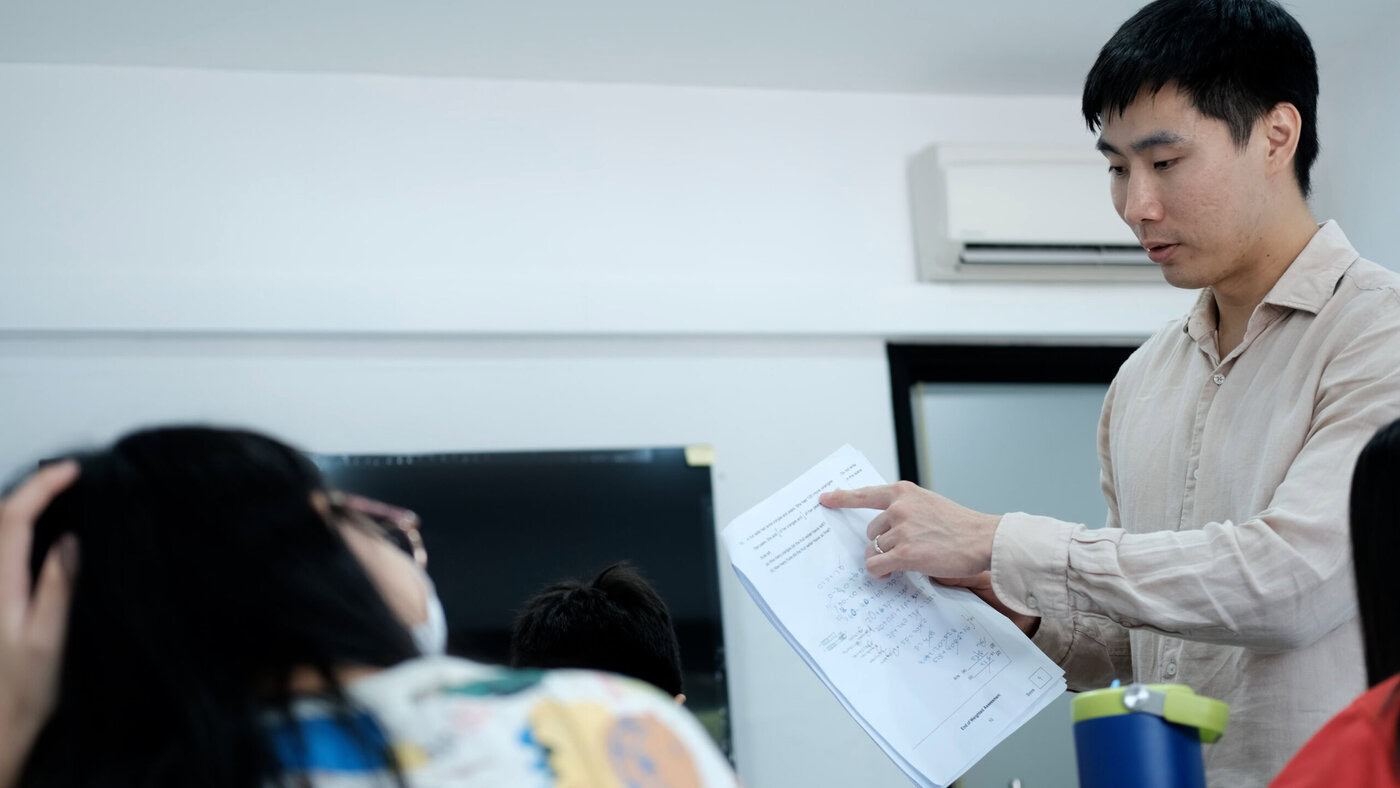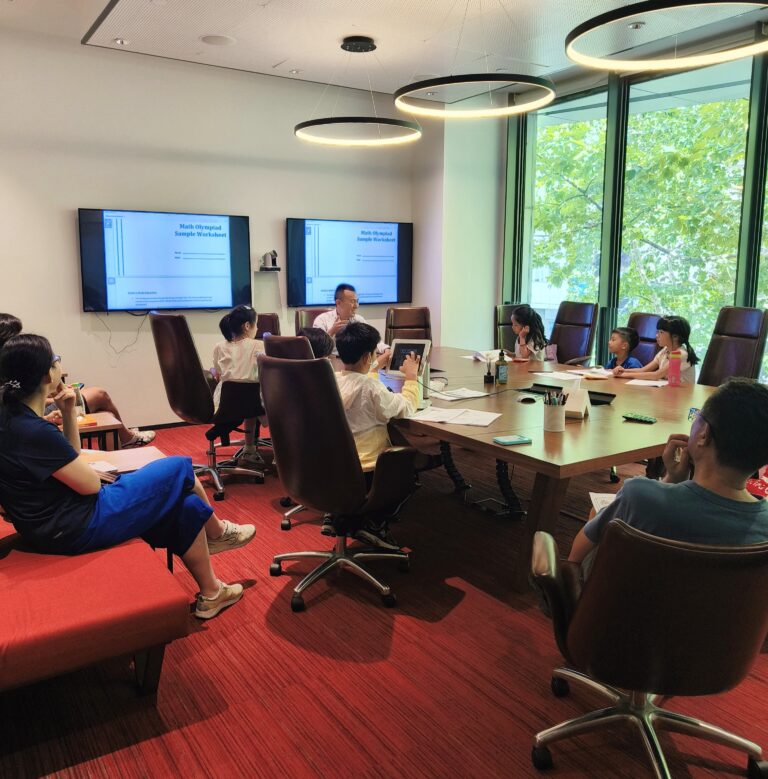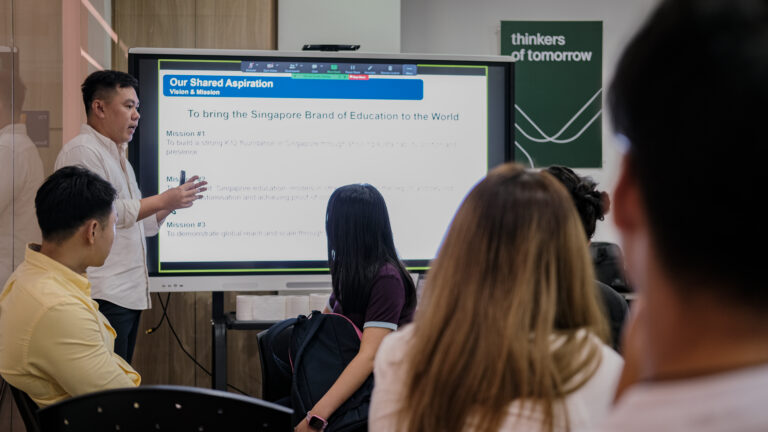As educators, we’re often asked what makes a child succeed—not just in exams, but in life. Is it intelligence? Hard work? Natural talent?
My belief is this: it’s not about being the smartest in the room. It’s about learning how to think smart.
And that belief stems from my own journey—not just as a student, but as someone who’s spent years on both sides of the classroom.
Learning Differently—Even as a Student
As a child, I approached school a little differently.
While most students feared exams, I saw them as puzzles waiting to be solved. I would analyse past-year papers like data—spotting patterns, tracking common topics, and planning my revision like a strategist. I didn’t have private tutors. My mum did what many parents do: she bought me every assessment book she could find, hoping something would stick.
And so I had to figure things out on my own. I’d compare methods from different books, test them, refine them, and even invent a few of my own. I didn’t just study—I experimented. What I learned back then wasn’t just content. I learned how to learn.
And that changed everything.
From Finance to the Front of the Classroom
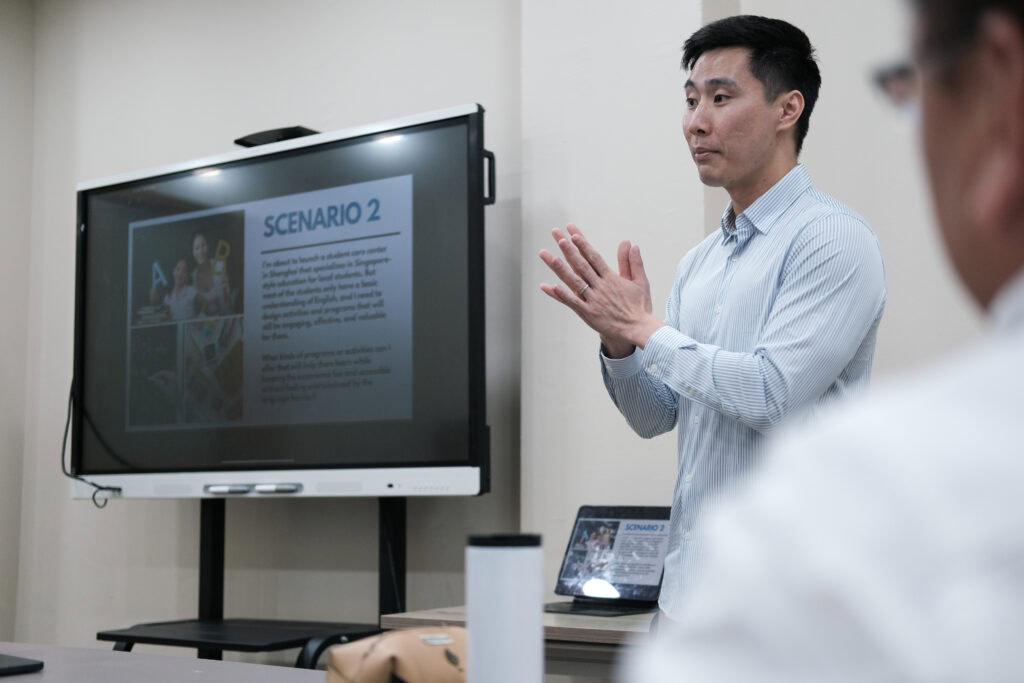
That mindset stayed with me as I pursued a double degree in Finance and Economics at SMU under a scholarship, and later joined UBS AG through its Graduate Talent Programme. I enjoyed the structure, the strategy, and the fast pace. On the surface, finance was everything I was wired to do.
But something else kept pulling at me.
Even while working full-time, I continued tutoring on evenings and weekends. The more I taught, the more I realised that many children weren’t underperforming because they lacked ability—they simply hadn’t been shown how to think strategically or study efficiently. They were working hard, but not always smart.
That’s when a conversation with my friend, Algene—who was practicing law at Allen & Gledhill—sparked an idea:
What if we could build something better?
What if we created a learning environment that didn’t just focus on exam results, but on teaching students the tools and techniques that would stay with them long after the exam was over?
That was the start of Think Teach Academy.
What We Believe (And What That Means for Your Child)
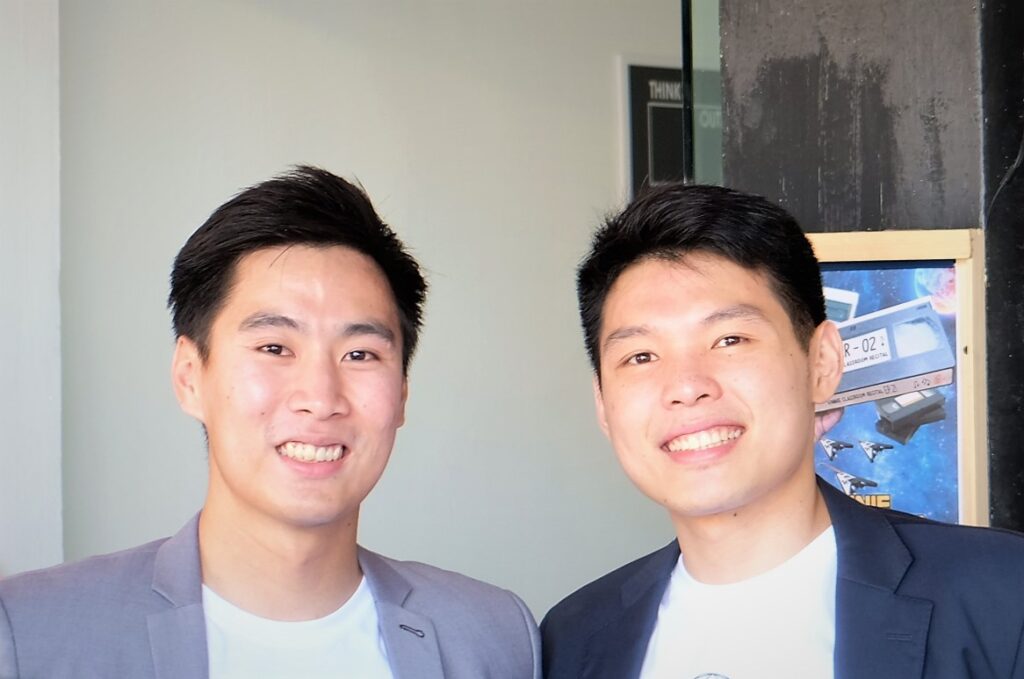
We founded Think Teach on a simple principle: that good learning isn’t about memorising answers—it’s about understanding how to ask better questions.
We knew from day one that grades matter. But so does confidence. So does clarity. So does helping a child feel in control of their own learning.
Our goal has never been to churn out more worksheets or longer hours. It’s to give students the mental frameworks and techniques that will help them tackle challenges, whether in school or beyond.
Because when a child knows how to learn, they’ll be able to apply it anywhere—be it in Math class, in an interview room, or in the real world.
Beyond Exams: Preparing Students for What Comes Next
Today, academic success is just one part of the puzzle. Many parents we work with are also thinking about Direct School Admission (DSA), scholarships, and preparing their child for opportunities beyond the classroom.
Having sat on scholarship panels and assessed candidates for competitive graduate programmes, I’ve seen what makes students stand out—and what holds them back. It’s not just about grades. It’s about self-awareness, articulation, and the ability to connect their experiences with their goals.
That’s why we place so much emphasis not just on exam technique, but on helping students tell their stories—through DSA portfolios, interview prep, and personal coaching. Because success isn’t just about scoring well—it’s about stepping forward with confidence when it matters most.
If you’re exploring the DSA route for your child, I’d love to invite you to our upcoming DSA Interview Masterclass. I’ll be sharing insights from my own experience sitting on scholarship panels and coaching students, alongside the Summit team who will bring real-life case studies and tips. You’ll learn how to help your child build confidence, craft compelling stories, and stand out in interviews.
🎟️ Seats are limited – don’t miss out!
Why I Chose to Leave—And What I Hope Every Student Gains
Leaving finance wasn’t just a career move. It was a commitment to something bigger: to build a space where students don’t just study harder—but learn smarter, think deeper, and grow into confident, curious learners for life.
I believe that every child deserves to be taught not just what to learn, but how to learn—and why it matters.
At Think Teach, we don’t just prepare students to do well in school. We prepare them to face the world with clarity, resilience, and purpose. We challenge them to see learning as a tool to unlock their potential—not just a race to the next grade.
If there’s one thing I’ve learned, it’s this:
When a student learns how to learn, they don’t just succeed in the classroom. They start believing they can succeed anywhere.
And that belief?
That’s the foundation we build every day.

Yours In Education
Shou Yee
Co-Founder
